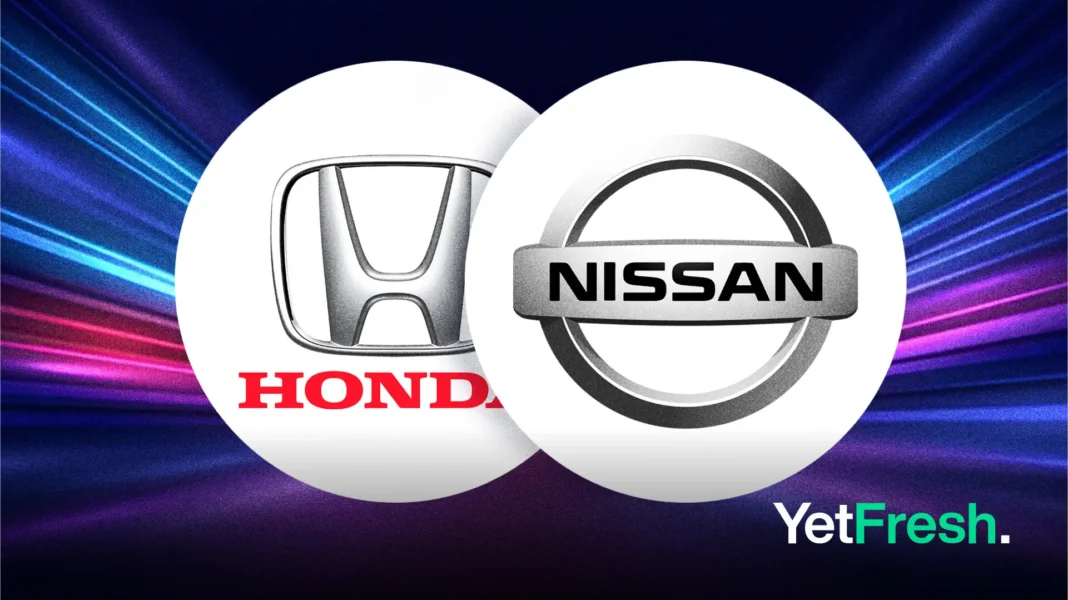Summary:
- Honda and Nissan have announced merger talks to form a joint holding company by June 2025, aiming to create the world’s third-largest automaker.
- The new entity will list shares in August 2026, with Honda controlling the majority of the board and leadership roles.
- The merger seeks to tackle challenges from EV leaders like Tesla and Chinese automakers while boosting efficiency and innovation.
- Former Nissan Chairman Carlos Ghosn criticized the plan, while Renault and Mitsubishi Motors are cautiously involved in the discussions.
TOKYO, Dec. 23, 2024 — In a landmark development for the global automotive industry, Honda Motor Co. and Nissan Motor Co., Japan’s second- and third-largest automakers respectively, have announced the initiation of formal talks to merge under a joint holding company. The proposed merger, expected to conclude by June 2025, aims to create the world’s third-largest automotive group by vehicle sales, trailing only Toyota Motor Corp. and Volkswagen AG.
The announcement was made during a joint press conference held in Tokyo on Monday morning, where Honda’s President Toshihiro Mibe and Nissan’s CEO Makoto Uchida were joined by Mitsubishi Motors’ head Takao Kato. Mitsubishi Motors, a key partner of Nissan, is also expected to integrate into the holding company at a later stage. The new entity is slated to list shares in August 2026, with Honda holding the majority of board appointments, including the leadership role.
Strategic Objectives and Industry Context
The merger is positioned as a response to intensifying competition in the global auto market, particularly from electric vehicle (EV) leaders like Tesla Inc. and Chinese automakers such as BYD Co. Both Honda and Nissan have faced challenges in maintaining competitiveness amid declining sales in key markets like China and the United States. By pooling resources, the companies aim to reduce costs, accelerate EV development, and strengthen their position in emerging technologies such as autonomous driving and software-defined vehicles.
In March 2024, Honda and Nissan began exploring a strategic partnership focused on EV production and software development. This collaboration expanded in August to include Mitsubishi Motors. Monday’s announcement formalizes these efforts into a broader consolidation plan.
The merger follows a series of setbacks for both automakers. Nissan recently announced plans to cut 9,000 jobs and reduce global production capacity after reporting a staggering 93% drop in first-half net profits. Similarly, Honda has struggled with declining earnings due to sluggish sales in China. The integration is seen as a lifeline for Nissan while offering Honda an opportunity to diversify its portfolio and enhance its technological capabilities.
Global Impact and Competitive Edge
If successful, the merger would result in annual sales exceeding eight million vehicles globally, surpassing South Korea’s Hyundai-Kia group to claim the third spot in global rankings. This scale is expected to provide significant cost advantages through shared manufacturing facilities, joint research initiatives, and streamlined supply chains.
The move also highlights Japan’s broader strategy to bolster its automotive industry as it faces growing pressure from international competitors. Speaking on Monday, Chief Cabinet Secretary Yoshimasa Hayashi underscored the importance of strengthening competitiveness in areas like EV batteries and software to meet global demand for cleaner vehicles.
Challenges Ahead
Despite its potential benefits, the merger faces skepticism from industry observers. Former Nissan Chairman Carlos Ghosn criticized the alliance during a separate online press conference on Monday, stating that “the two automakers are not complementary.” Ghosn’s remarks reflect concerns about cultural differences between the companies and their ability to execute such an ambitious integration plan effectively.
Additionally, Renault SA—Nissan’s largest shareholder with a 43% stake—has expressed cautious support for the merger but is reportedly evaluating its implications closely. Meanwhile, Taiwanese electronics giant Foxconn recently paused its pursuit of acquiring a stake in Nissan after initial discussions faltered.
Market Reaction
News of the merger talks buoyed investor confidence. On Monday, shares of Honda closed up 3.8%, while Nissan gained 1.6% and Mitsubishi Motors rose by 5.3%. The benchmark Nikkei index also climbed 1.2%.
The proposed Honda-Nissan merger represents one of the most significant shakeups in the automotive industry since Fiat Chrysler Automobiles merged with PSA Group in 2021 to form Stellantis NV. As legacy automakers face mounting pressure from EV pioneers and tech-driven competitors, this consolidation could set a precedent for further alliances aimed at navigating an increasingly complex market landscape.
For now, all eyes are on June 2025—the target date for finalizing what could be one of Japan’s most transformative corporate mergers in decades.
Source: Reuters




